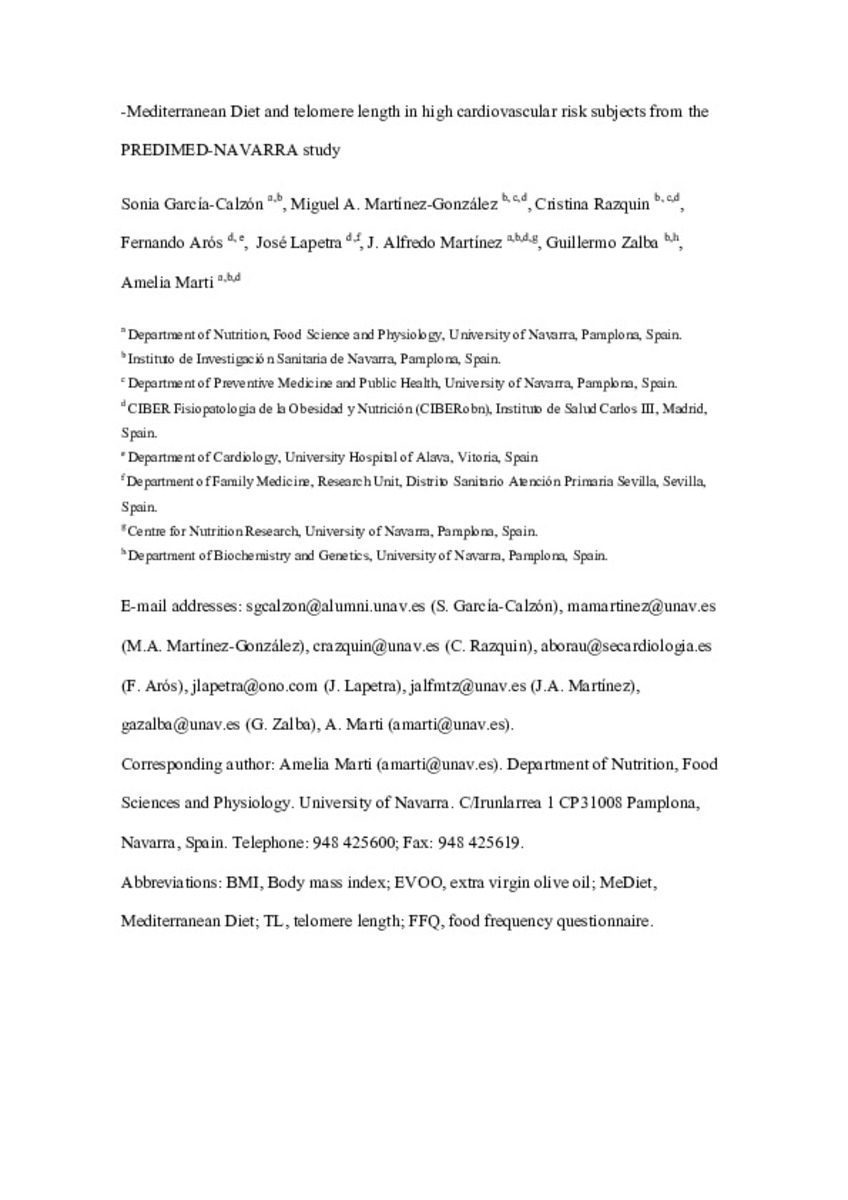Mediterranean diet and telomere length in high cardiovascular risk subjects from the PREDIMED-NAVARRA study
Palabras clave :
Mediterranean diet
Nutrition
Telomere
Aging
Intervention
Materias Investigacion::Ciencias de la Salud::Nutrición y dietética
Fecha de publicación :
dic-2016
Nota:
Creative Commons Attribution Non-Commercial No Derivatives License
Cita:
Garcia-Calzon S, Martínez-González MA, Razquin C, Aros F, Lapetra J, Martinez JA, et al. Mediterranean diet and telomere length in high cardiovascular risk subjects from the PREDIMED-NAVARRA study. Clin Nutr. 2016:1-33.
Aparece en las colecciones:
Estadísticas e impacto
0 citas en

0 citas en

Los ítems de Dadun están protegidos por copyright, con todos los derechos reservados, a menos que se indique lo contrario.









